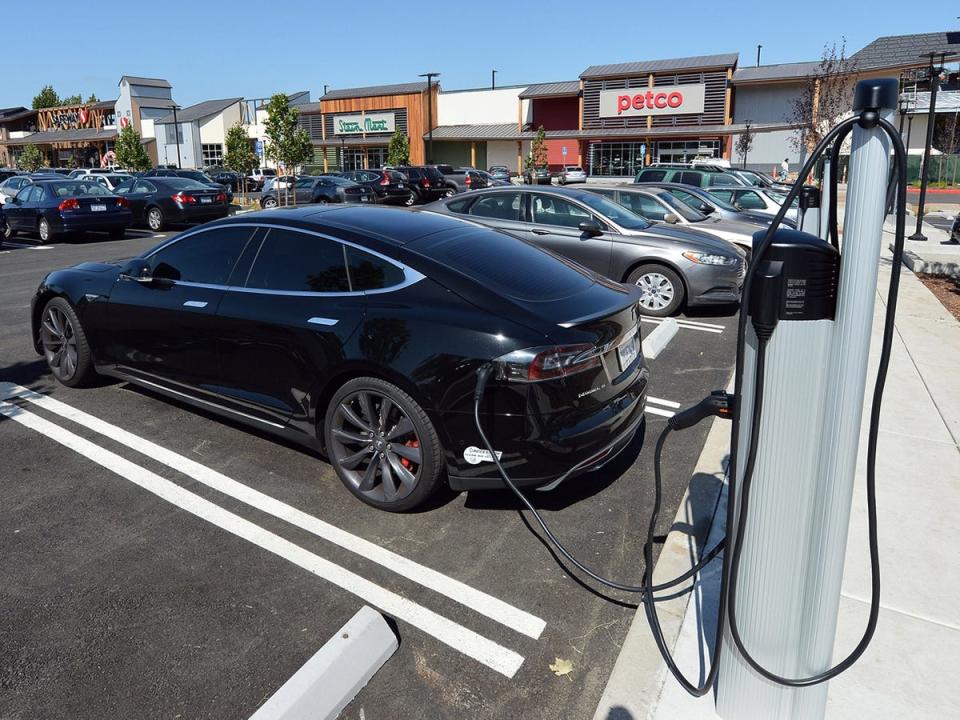State panel adopts plan for net-zero emissions, but some think it doesn't go far enough
PROVIDENCE — The state panel in charge of climate policy adopted a plan on Thursday for deeper cuts in greenhouse gases that aims to keep Rhode Island on track to reach net-zero emissions by 2050.
The Executive Climate Change Coordinating Council approved the update to a 2016 greenhouse gas reduction plan in order to comply with the Act on Climate, the state law enacted last year that mandates emissions cuts and established the net-zero goal.
More:Greenhouse gas emissions were down in 2018-2019. Why Rhode Island may not meet a 2030 goal.
Approval came despite concerns that the plan would fall short of the 2030 interim target for slashing emissions and criticism from the attorney general’s office and some environmental advocates that it lacks important details.
“We're close and we’re moving in the right direction, but we’re not dead-on hitting the target yet,” Terry Gray, director of the state Department of Environmental Management and chair of the climate council, said of the projected impact of the plan.
But others were not so optimistic.
“We’re not getting where we need to go,” said Timmons Roberts, Ittleson professor of environmental studies and sociology at Brown University.
The Act on Climate required an updated climate plan as one of the first steps in a number of measures to ensure compliance with its strictures. The plan is the result of a series of meetings that have been held by the climate council since September 2021.
It calls for continued investments in offshore wind, a modernization of the electric grid and more work to weatherize homes and upgrade heating and cooling systems to use energy as efficiently as possible.
It also sets specific targets for electric vehicles — a 10% penetration of the market by 2030 — and electric heat pumps that would replace home oil- or gas-burning systems — a conversion of 15% of all buildings away from fossil fuels also by the end of this decade. Beyond existing programs, however, how the state would get to either goal is unclear.

Much of the plan builds on initiatives that have been approved, such as the state’s Renewable Energy Standard, which the General Assembly amended in its last session to require all electric consumption in Rhode Island be offset by solar, wind and other green sources of power by 2033. But there are also new ideas, including the creation of a Renewable Thermal Standard that would gradually require decreases in emissions from heating systems.
The state appears to have already met the first target put in place by the Act on Climate — a 10% drop in emissions from a 1990 baseline by 2020. An analysis of the latest emissions inventory in Rhode Island, for 2019, which was released earlier this week, showed the number had already dropped 19.6%.
But because of a three-year lag in federal data that is essential to emissions calculations, and because emissions can fluctuate from year to year, where the state actually stands at any moment can’t be given definitively.
And it already looks as though the new plan doesn’t go far enough. Modeling by the Acadia Center and the Rocky Mountain Institute, which are clean energy groups working with the state, projects Rhode Island will fall short of the 2030 target set by the Act on Climate of a 45% reduction in emissions.
The climate council acknowledged the gap and said it will flesh out proposals for additional cuts in a 2025 climate strategy that would be more comprehensive than the update approved on Thursday.
“It’s a step and we still have a lot of work to do,” Gray said.
But critics said the state needs to act with more urgency and adopt more aggressive programs. More than one environmental group proposed a rewrite of the state’s building code to ban new hookups to fossil fuels for heating. Others advocated expansion of public transit to reduce transportation emissions.

There are other questions about the final draft that was voted on. The office of Attorney General Peter Neronha criticized the plan for having too many recommendations that “are unacceptably vague and do not lead to action or serve as measures for accountability.”
“Many of these issues involve areas of uncertainty — when there is an issue that cannot currently be solved, that should be stated plainly, the barriers to solving the issue should be identified, and a series of steps to solve the issue with a timeframe commitment should be established,” the Attorney General’s office stated in written comments submitted to the council.
Larry Chretien, executive director of the Green Energy Consumers Alliance, also complained about the lack of detail. He commended the council for its work, but said it lacks funding and adequate staffing to do more.
“To me," he said, "the document is incomplete."
This article originally appeared on The Providence Journal: Panel adopts plan for how RI will reduce emissions by 2050

